.png)
Anna Andreenkova Delivered a Report at the Eurasian Monitor Seminar
Her presentation opened the "International Social Studies" seminar.

Congratulations to Nikita Zubarev on His Successful Dissertation Defence for the Degree of Candidate of Political Sciences
Research Assistant at the Laboratory for Comparative Social Research defended his candidate dissertation on the topic “Affective Sources of Trust in the President of Russia”.
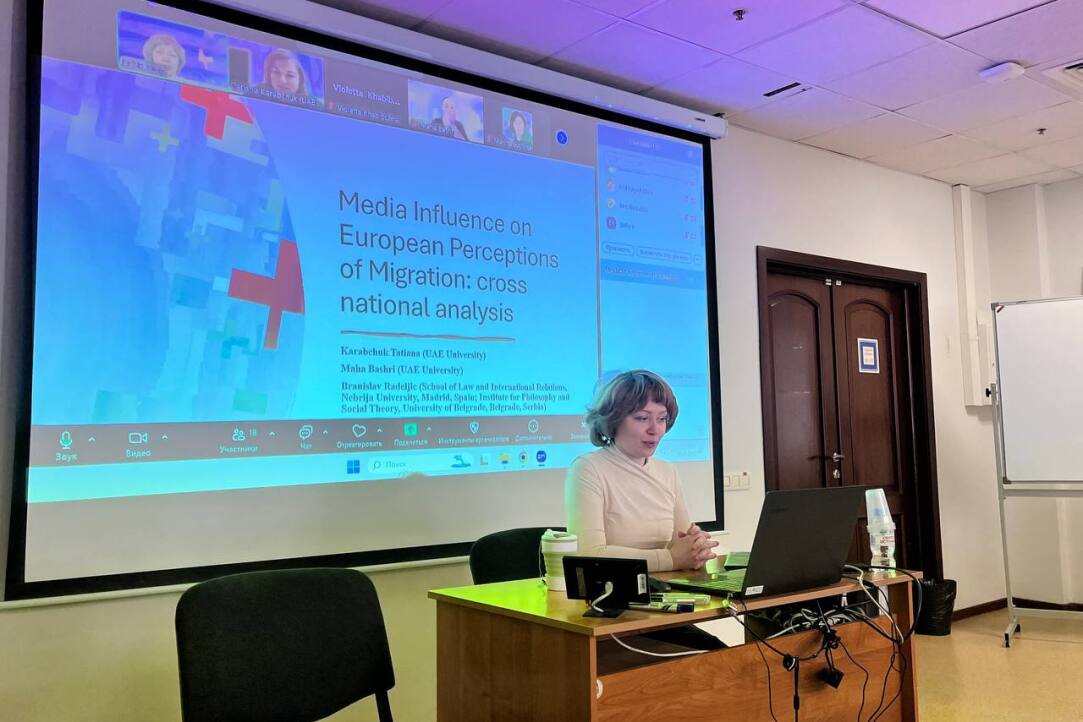
The 14th LCSR International Workshop: Day 1
On April 14, the 14th LCSR International Workshop started offline in Moscow and online.
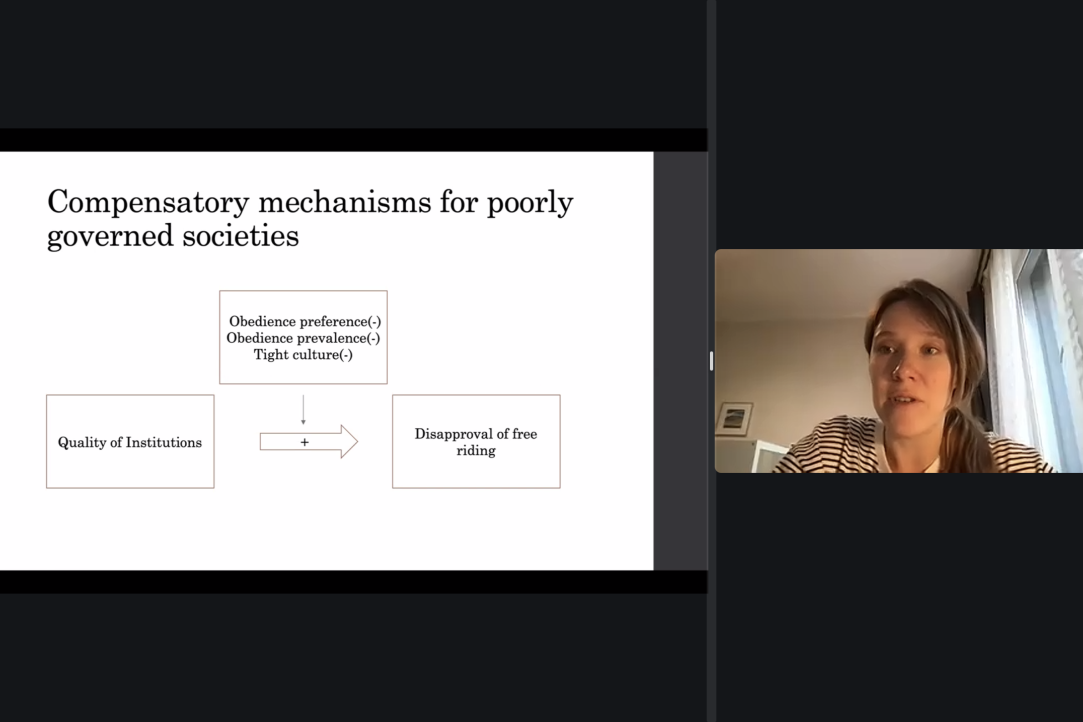
The First Regular LCSR Seminar of Autumn Semester–2024 Was Held
Ekaterina Nastina presented the report ‘Justifiability of Free Riding and Quality of Institutions: The Moderating Role of Personal Values and Culture’.
Congratulations to Dmitry Arkadov on Successful Dissertation Defense for the Degree of Candidate of Political Sciences
Research assistant at the Laboratory for Comparative Social Research defended his candidate dissertation on the topic “The Formation and Function of Mechanisms of Electronic Participation in Russia's Regions”.
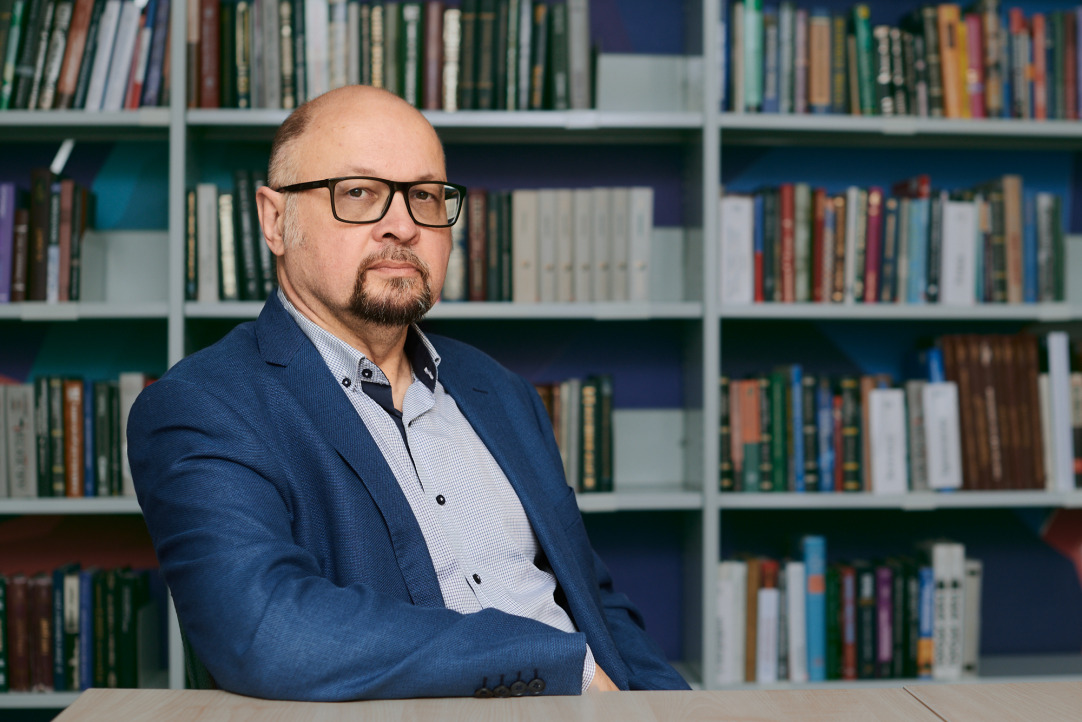
Eduard Ponarin Received a Letter of Appreciation from the Rector of HSE University
Eduard Ponarin received a letter of appreciation for many years of work and dedication to his profession.
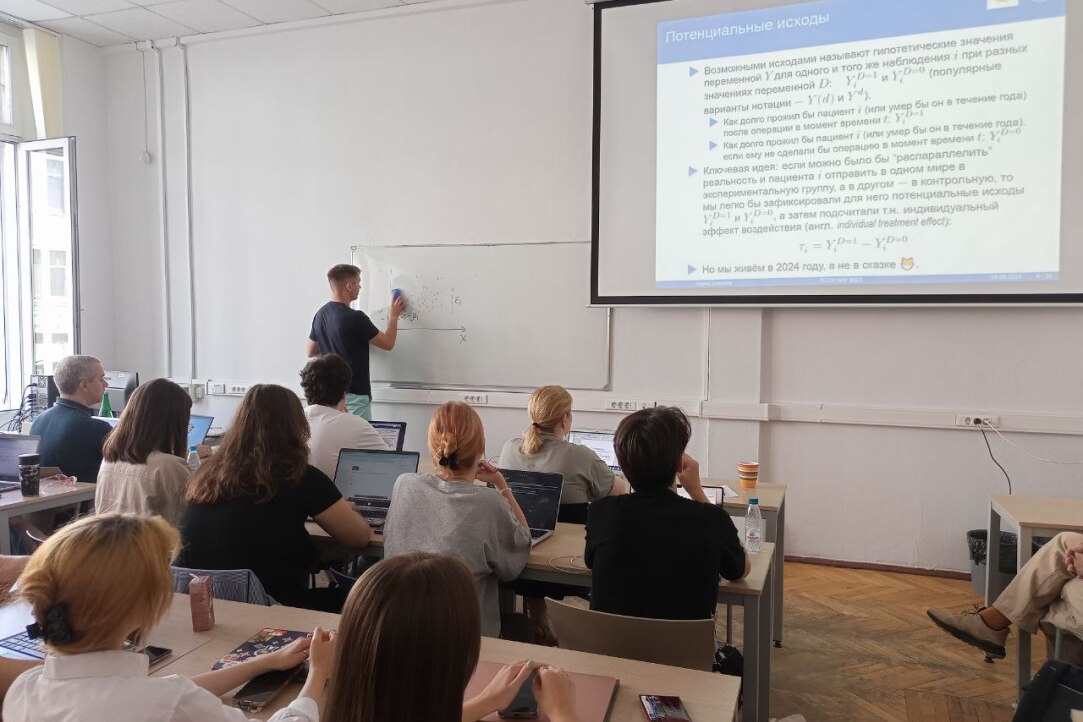
Advanced Training Courses Were Held at the R. F. Inglehart Laboratory for Comparative Social Research
This year's course topic is "Methods of Statistical Causal Inference".
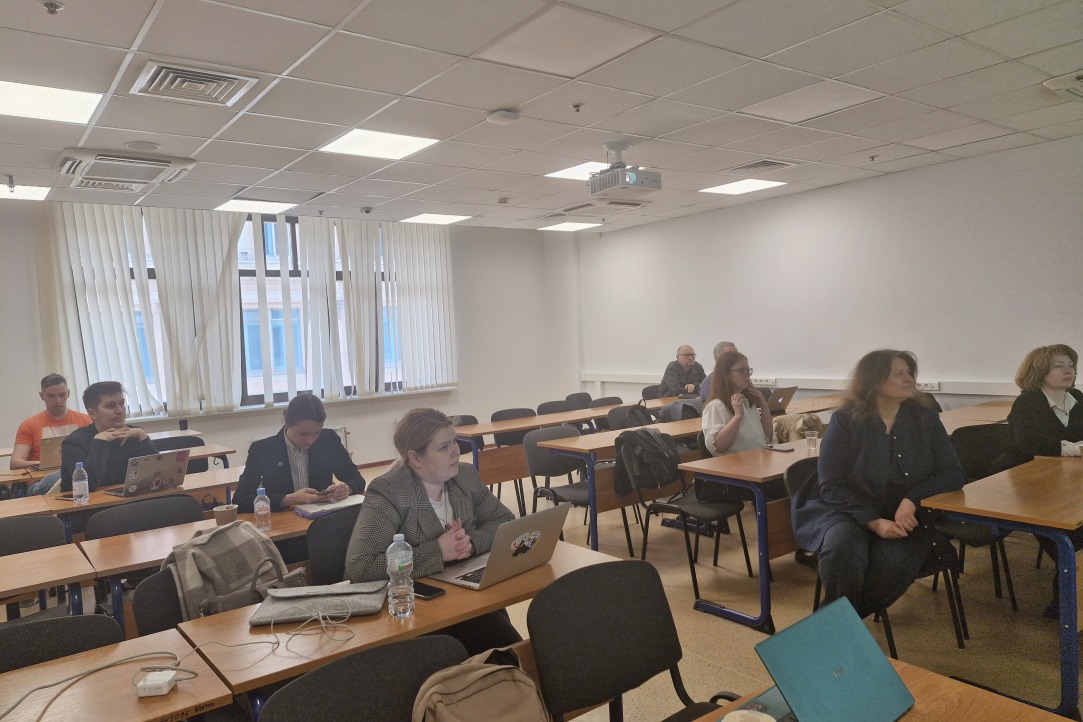
Subjective Well-being and Regional Quality of Life in Russia
On the final day of the 13th LCSR International Workshop, Ekaterina Nastina presented a study "Subjective Well-being and Regional Quality of Life in Russia" co-authored with Anna Almakaeva.

Values Change in Russia, Mexico and Germany
At the 13th LCSR International Workshop participants presented their studies on the dynamics of values in Mexico, Germany and Russia.

Historical Legacies of the BAM: Mechanisms of Persistence and Contemporary Effects
On April, 24th at the 13th LCSR International Workshop Alexander Libman (Free University of Berlin, Germany) presented the study “Historical Legacies of the BAM: Mechanisms of Persistence and Contemporary Effects”.
In this paper, we use data from a longitudinal online study to examine how characteristics of prosocial behaviors influence the level of positive affect they produce. Although much work has found that prosocial behaviors benefit those who enact them, the question remains if and how these effects vary based on characteristics of those acts. Using models that adjust for co-occurrence among act characteristics, we find that positive affect produced by prosocial acts is greater for those acts that: involve giving money or items, are seen as unusually kind, elicit positive feedback, and are varied over time. However, we find that the actor’s relationship to the beneficiary, reaping benefits from prosocial acts, and the number of successive acts made no difference in terms of resultant positive affect. We conclude with a discussion of potential mechanisms explaining these differing effects and explore practical implications for kindness interventions.
This paper inspects the changes in basic human values (“Schwartz values”) during the coronavirus pandemic, as well as analyzes the associations between values and negative pandemic experiences. Using the 4 waves of the panel online survey ‘Values in Crisis’ conducted in 2020–2022 in Russia, the study highlights the short-term nature of value changes and general stability of orientations. The findings demonstrate a small decrease in conformity, stimulation and self-enhancement at the beginning of the pandemic, along with a decline in self-transcendence and self-enhancement and an increase in hedonism by the end of the period. Additionally, the results illustrate fluctuations in conformity values throughout the pandemic. Multilevel regression models indicate positive associations of health-related concerns with conservation, and the opposite relationship – with openness to change. Negative economic experiences, both first-hand and prospective, demonstrate a reverse association with tradition. Further analysis suggests that the impact of health-related experiences decreases over time, whereas economic-related issues become more important. The study contributes to understanding value dynamics during crises, highlighting the differential and evolving impact of pandemic-related experiences on human values.
When and how does an environmental protest cycle affect election outcomes under electoral authoritarianism? Drawing on the case of the Bashkortostan republic, a Russian ethnic region, I leverage the spatial proximity to the protest site to identify its effects on parliamentary elections. The environmental protest cycle peaked in Bashkortostan around the regional government’s decisions to extract minerals from shikhans – mountains composed of limestone. Employing a difference-in-differences (DiD) design, I show that precincts exposed to the environmental protest cycle experienced a significant drop in United Russia vote share, while voting for systemic opposition increased in the affected precincts. To explain the dynamics, I propose treating non-political protests, such as environmental ones, as an information revelation mechanism. The mechanism identified through a causal mediation analysis indicates that the environmental protest cycle conveys information on regional malperformance to voters. Their updated preferences, in turn, heavily undermine the electoral mobilizing capacity of local elites.
This study investigates the factors contributing to cross-cultural variation in the disapproval of free-riding behaviors such as tax evasion, fare dodging, and benefits fraud. While some cross-cultural researchers contend that attitudes toward these behaviors exhibit minimal variance due to a universal value of fairness, others adopting an institutional perspective argue that significant differences can be explained by factors like government effectiveness and the rule of law. We aim to replicate the pivotal role of institutional quality and propose that its impact is further moderated by cultural dimensions of individualism-collectivism and tightness-looseness. Utilizing a diverse dataset from the World Values Survey and European Values Study, encompassing 92 countries and over 158,000 individuals, we employ multilevel modeling to explore global and contextual patterns. Our findings reveal that while institutional quality reduces tolerance for free riding globally, its effect is not uniform and varies significantly based on cultural context. Specifically, whereas attitudes to free riding in individualistic and loose cultures depend heavily on just and effective governance, in collectivist and tight societies this reliance diminishes as group-centric values and low tolerance toward deviance help sustain compliant attitudes even when institutional quality is low.
Even in the most egalitarian societies, hierarchies of power and status shape social life. However, power and received status are not synonymous—individuals in positions of power may or may not be accorded the respect corresponding to their role. Using a cooperatively collected dataset from 18,096 participants across 70 cultures, we investigate, through a survey-based correlational design, when perceived position-based power (operationalized as influence and control) of various powerholders is associated with their elevated social status (operationalized as perceived respect and instrumental social value). We document that the positive link between power and status characterizes most cultural regions, except for WEIRD (Western, Educated, Industrialized, Rich, Democratic) and Post-Soviet regions. The strength of this association depends on individual and cultural factors. First, the perceived other-orientation of powerholders amplifies the positive link between perceived power and status. The perceived self-orientation of powerholders weakens this relationship. Second, among cultures characterized by low Self-Expression versus Harmony (e.g., South Korea, Taiwan), high Embeddedness (e.g., Senegal), and high Cultural Tightness (e.g., Malaysia), the association between power and status tends to be particularly strong. The results underline the importance of both individual perceptions and societal values in how position-based power relates to social status.
How do non-probability online surveys perform in nondemocratic contexts? To address this question, we compared the data from two web surveys (WSs), conducted in Russia in 2018 and 2020, using opt-in panels, to the offline data from wave 7 of the World Values Survey (fieldwork in Russia 2017), round 7 of the Russian Social Survey (fieldwork in Russia 2018–2019), and the 2010 Russian Census data. We found that (a) WSs under-covered older, less educated and rural respondents, compared with both the offline sample and the Census benchmarks; (b) various types of straightlining were somewhat more prevalent in WSs, but the average time spent per item was comparable to that in the offline sample; (c) online respondents expressed considerably more liberal views on such issues as homosexuality, abortion, and divorce, as well as gender equality, compared with offline respondents (by 10% of the total scale range for each domain); and (d) WSs produced slightly different nomological networks of attitudinal orientations.
Previous research has often demonstrated that liberal values and democratic regimes are associated with higher levels of subjective well-being (SWB). However, consistent results are only found at the country level, while at the individual level the relationship between values, democracy, and SWB is not as clear. This article analyzes recent data from 86 countries and shows that individual SWB depends on whether one’s values match the country’s predominant values and political system. In authoritarian countries, those with more conservative values tend to exhibit higher levels of SWB, reaching a level of happiness comparable to that of an average person in a typical democracy. Conversely, their liberal-minded compatriots often report significantly lower levels of SWB. In democracies, people with more liberal values tend to have higher SWB than do conservatives, although this difference is not as robust as in autocracies. This study emphasizes the importance of political context in the relationship between liberal values and SWB.
Wellbeing levels have been a global concern during the COVID-19 pandemic, but there is a lack of attention to invariance questions that allow a robust examination of wellbeing dynamics across cultures. Questions of temporal stability that are crucial for examining the impact of the pandemic on wellbeing have received even less attention. Some studies suggested that measures may not be stable after the onset of the pandemic. We examine invariance parameters, the factorial structure and variability of wellbeing variables (life satisfaction, pandemic worries, anxiety and depression screenings) across five different cultural contexts from 2020 to 2022 (N = 4387, total observations = 13,161). A three-factor model separating life satisfaction, worry and distress performed best in terms of model fit and parsimony. We observed scalar invariance across times and identified little variability of wellbeing measures during the pandemic, suggesting that wellbeing levels remained stable during the pandemic in each of the countries sampled. In contrast, we only identified metric invariance across countries at each time point, and found a weakening of correlations between life satisfaction and a depressive/anxious symptoms scale in lower income countries. We discuss implications of our findings for discussions of wellbeing dynamics.
We recommend you to use the following HSE affiliation:
In Russian:
Лаборатория сравнительных социальных исследований, Национальный исследовательский университет «Высшая школа экономики».
In English:
Laboratory for Comparative Social Research, National Research University Higher School of Economics, Russian Federation.
The source of the research financing is strictly required:
In Russian:
Статья/монография/глава подготовлена в ходе/в результате проведения исследования/работы в рамках Программы фундаментальных исследований Национального исследовательского университета «Высшая школа экономики» (НИУ ВШЭ).
In English:
The article/book chapter/book was prepared within the framework of the HSE University Basic Research Program.


